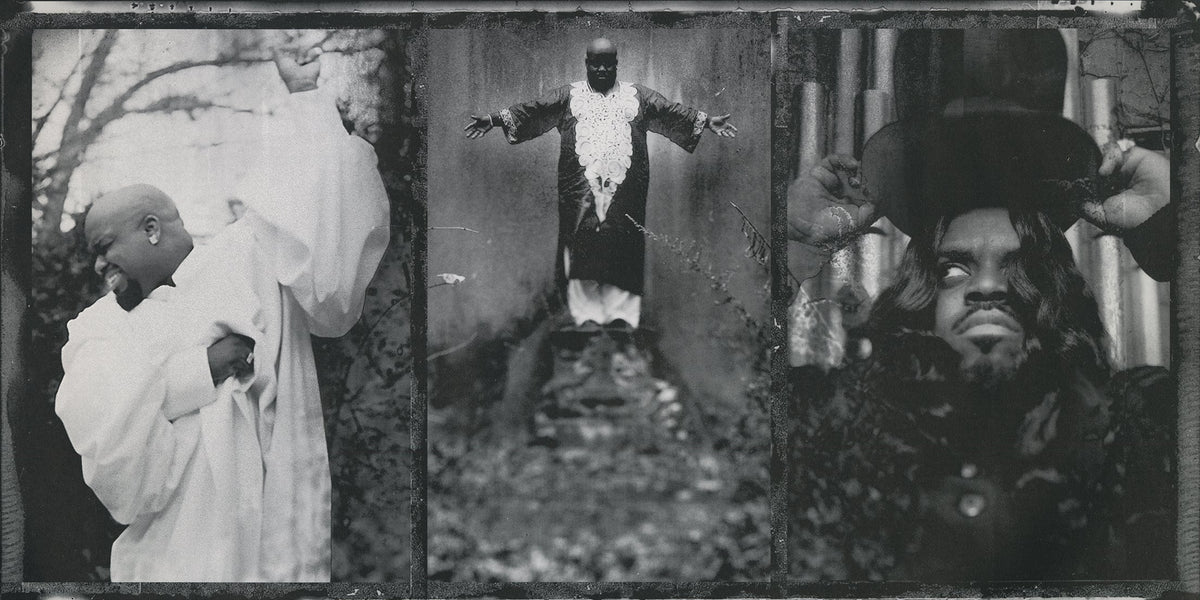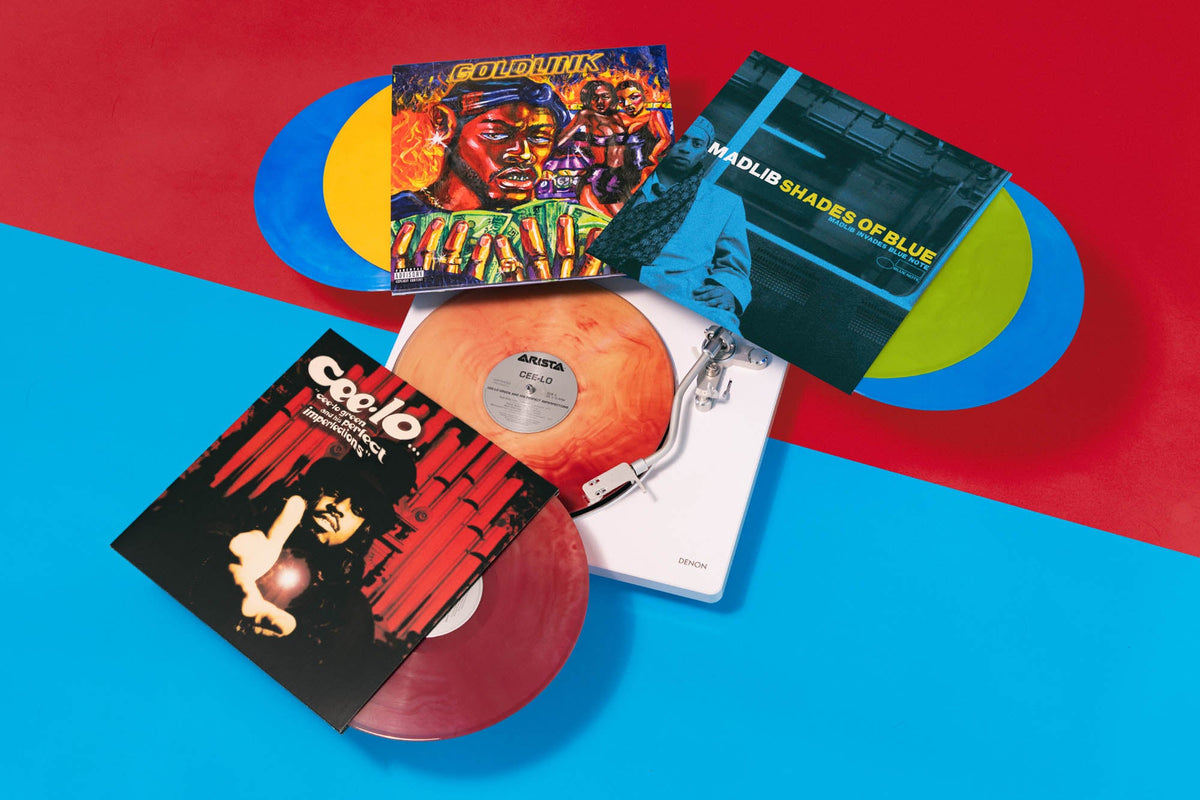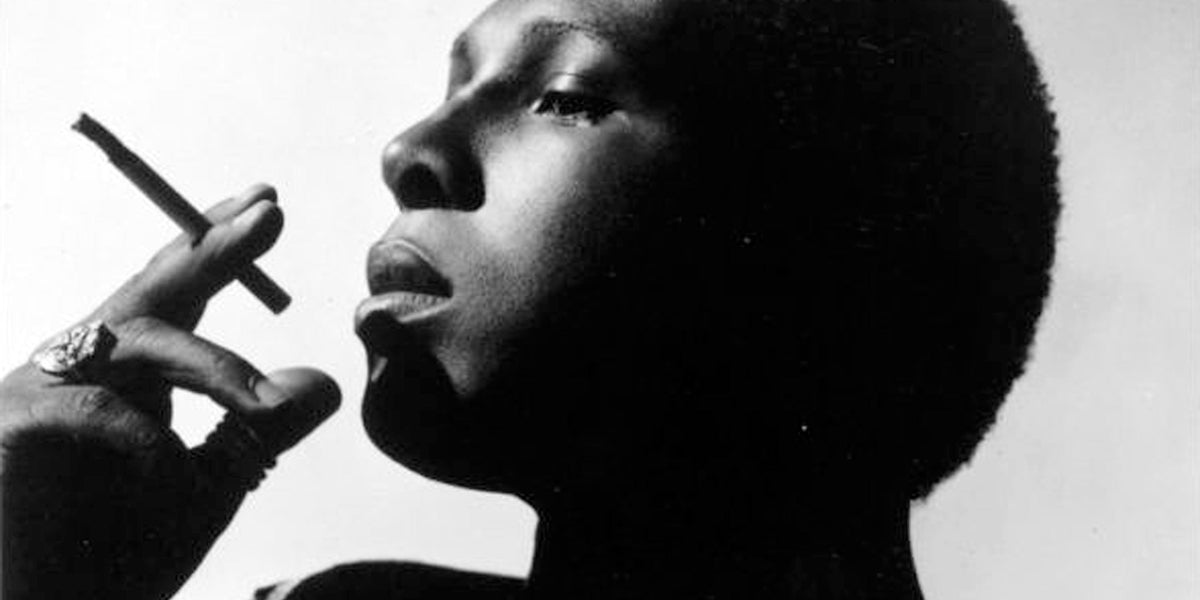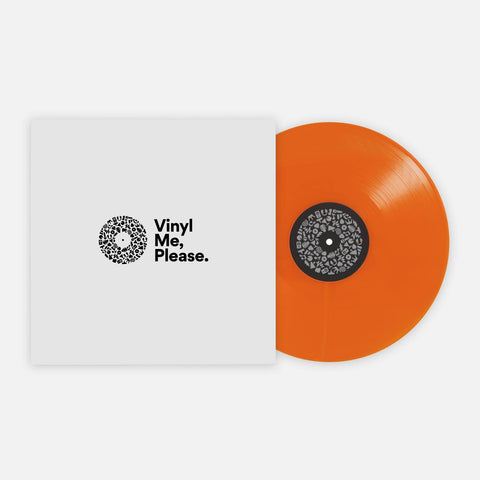GoldLink’s Go-Go Coming-of-Age Story
On ‘At What Cost,’ the major-label debut from the D.C. rapper
One of the most memorable — and provocative — moments of GoldLink’s At What Cost happens in an instant while the album is still beginning. As “Meditation” comes to an end, the song gives way to a crowd of people talking over it, evoking a typical night out at the club. Suddenly, a gun gets cocked — “Oh, shit!” someone yells as the gun fires. The music comes to an abrupt end. The night is over. Just another weekend in D.C., where things can take a turn for the worse in a matter of seconds.
At What Cost is GoldLink’s coming of age story. The grief, joys and tragedies of an artist who wants to be something bigger than himself for a city he deeply cares about — even if it sometimes doesn’t seem to care for him. Interwoven in his story is also a celebration and eulogy of a D.C. that has gradually disappeared: a city once affectionately known as the nation’s “Chocolate City,” now not so much, and with that an erasure of Black history, music and spaces that people are trying to keep alive.
In order to tell this story, GoldLink would have to channel the essence of something beloved not just in the District but its neighboring states, Maryland and Virginia. A motif that would ground the album and help bring together past and present Black music across the DMV to create a rich, musical tapestry that allowed GoldLink to explore the light and dark of a beloved but complicated place: go-go.
A mix of the driving grooves of funk, the call and response tradition of gospel music, the improvisation of jazz and the percussive rhythms of Latin music, go-go’s creation is often credited to the late Chuck Brown, heralded as the Godfather of Go-Go. There’s two reasons for this, both of which come from Brown’s band, The Soul Searchers: their 1978 hit song “Bustin’ Loose,” where syncopated rhythms from congas, cowbell and timbales play over a straightforward drum beat (one of the defining concepts of go-go music), and their distinct approach to playing music live.
“When they finished playing a song, instead of the band stopping and then they go into the next song, the drums and the percussion section would immediately go into the beat of the next song they’re going to play,” go-go historian and musician Kevin “Kato” Hammond told Washington’s Top News (WTOP) in August 2022.
Other groups like The Young Senators, Ayre Rayde and Rare Essence also contributed to go-go’s rise in the ’70s, culminating in the genre’s peak in the ’80s, thanks to songs like Experience Unlimited’s “Da Butt,” and groups like Trouble Funk and Junkyard Band signing to Sugar Hill Records and Def Jam, respectively.
As go-go has gotten older, it’s gone through some growing pains. The genre has continued to evolve; its traditional sound has been reinterpreted through R&B, gospel and rap, and mutated into different styles like the divisive bounce beat. It also has been policed throughout most of its existence, with D.C. police going as far as creating a “Go-Go Report” to surveil go-go events, as well as cracking down on those events as a result of the violence that tended to occur at them.
“Go-go remains really entirely an African-American music form,” Kip Lornell, George Washington University professor and co-author of The Beat: Go-Go Music from Washington, D.C., told Complex in May 2017. “And there’s been a very uneasy relationship between the government and go-go over the years. The city council in the late 1980s wanted to basically legislate go-go out of Washington, D.C., because it was perceived to be too black and too dangerous.”
To blame the violence on music rather than the socioeconomic disadvantages that Black people often face (which go hand in hand), is a strategy frequently used by police officers and politicians to suppress sounds and spaces meant for Black people (most notably with rap music), and absolve themselves of the bigger problem of upholding those disadvantages. Nothing embodies this quite like the following statement a D.C. police commander made during a 2005 hearing on nightclub violence: “It’s this go-go. If you have a black-tie event, you don’t have any problem. But if you bring go-go in, you’re going to have problems.”
As a result, go-go’s essence and impact gets diminished, seen as something bad instead of something much more complex, nuanced: a reflection of the Black people in D.C. (and the MV) — the good, bad and ugly.
At What Cost is in that bittersweet and gray area, a reflection of GoldLink’s real-life experiences.
“You never knew when you were going to die,” GoldLink told Complex in that same story. “It’s crazy how on edge everybody was and how all these things lead up to this event and you never knowing you could die. And that was the exciting part, the suspenseful part — that literally something could happen every time you go out.”
For GoldLink, his era of go-go was from 2006-2011. A time when artists like Wale were gaining local attention with songs like “Dig Dug” (2006), which found the then-up-and-coming rapper rhyming over go-go (also can’t forget 2011’s “Bait,” which fused the then-rising trap-rap sound with go-go timbales), bounce beat groups like ABM, TCB and XIB were becoming the new representatives of go-go, and then-Mayor Adrian Fenty was enlisting notable go-go figures like Backyard Band frontman (and The Wire’s Slim Charles) Anwan “Big G” Glover as a part of his “Go-Go 4 Fenty: We Got the Facts, Not Fiction” campaign for a reelection bid. This was also the era of the Go-Go Report, and go-go venues being shut down for club violence and liability issues, or having to ban go-go groups from performing at their establishments, pushing the music beyond District lines into Maryland suburbs like Prince George’s and Charles counties.
Throughout At What Cost, you get a sense of this divide — excitement, fun and joy; paranoia, suspense and tragedy — whether it be through the lyrics or sonics (or both). Sometimes they exist on the same song. But most times they’re separate, the project going back and forth between the two.
At What Cost starts in that latter state, which is always lurking throughout the album. It’s overt in its beginning; the dark and dissonant “Opening Credit” is a brief auditory nightmare of a burning D.C. that gives way to the menacing and moody “Same Clothes as Yesterday,” where GoldLink provides a hook that doubles as a mantra of resilience: “All this bullshit happened / I still smile through the shit / I ain’t really really even supposed to here / They don’t want me here / But I ain’t ’bout to leave here.”
Sometimes it’s unexpected, as is the case with the end of “Meditation,” or in a passing line in a rather upbeat song (“Niggas got killed for the boy, live his dreams in the hills,” GoldLink raps on his “Crew” verse). Other times, it comes in the form of GoldLink’s inner demons, as is the case on “The Parable of the Rich Man,” where he’s reminded of the many close calls he’s had with death.
What these moments make clear is the survivor’s guilt GoldLink feels — that he could’ve been arrested or killed like many of the people he knew. Instead, he’s achieved success: He’s been featured in Rolling Stone, and can afford everything from French luxury cars like Citroën to penthouse suites, as he raps on album-ender “Pray Everyday (Survivor’s Guilt).”
But even before the fame, GoldLink still had good times, balancing out some of the darker parts of At What Cost. Sure, most of them involve women — from reminiscing on past flings across D.C. on “Have You Seen That Girl?” to chatting up a girl at the club he envisions a future with on “Meditation” — but there are other moments, too, like hanging with his crew at former Maryland music venue Le Pearl Ballroom on “Roll Call,” or pulling up to Rita’s Italian Ice on “Herside Story.”
In joy and grief, D.C. is always present. There’s the locations (from the Benning Terrace public housing project better known as “Simple City” in southeast D.C. to U Street, once known as the “Black Broadway” of the city), lingo (“kill moe” and “leggin’”) and locals, whether referenced (“Kokamoe Freestyle” being named after legendary street rapper Thomas “Kokamoe” Goode, or beloved go-go group the Backyard Band getting name-dropped on “Meditation”) or actually featured on the album, of which there are many.
On At What Cost, all of the DMV’s musical talent is accounted for: D.C.’s Mya, Kokayi, Shy Glizzy and Wale; Maryland’s Brent Faiyaz, Ciscero and Lil Dude; and Virginia’s April George.
“Everyone has different experiences in the DMV,” GoldLink told The Washington Post in April 2017. “I’m an Uptown baby, but I grew up in Maryland and then I moved to Virginia. Some people live on the South Side their whole life. There’s different quadrants, and I can’t really tell the whole story. I wanted to get different perspectives and different people sharing their story on one platform.”
In doing this, GoldLink not only showed the musical relationship shared between the three states, but acknowledged hometown heroes (some turned mainstream stars) while looking to the future of rising artists out of the DMV. Many of these features contribute to some of At What Cost’s best moments: Ciscero’s ravenous opening verse on “Same Clothes as Yesterday.” Kokayi serving as hype man on the KAYTRANADA-produced “Hands On Your Knees” — arguably one of his best beats — an ode not just to the feel and sound of go-go (listen close enough and you can hear that go-go percussion embedded deep in the track), but how the music was circulated, too (the song almost sounds like a live recording, reminiscent of how go-go fans recorded shows back in the day on their boomboxes and hand-held cassette players). And, of course, “Crew.” The buildup, the drop, Faiyaz’s instantly memorable hook, and that delightfully defiant and loud opening line from Glizzy: “HEY, NICE TO MEET, I’M YOUNG JEFE, WHO YOU BE?” To call “Crew” one of the best songs of the last decade isn’t an exaggeration. To this day, if it drops at the function, everyone will be dancing and reciting each and every part until the very end — and Faiyaz and Glizzy are an integral part to its continued longevity.
All of this culminates in what is still GoldLink’s most ambitious endeavor to date: an album that posits the question “At what cost?” to shed light on a D.C. that’s much different than the one it is now.
“If you look back, D.C. had this genre of music that was our own. We created something that only we truly understood,” Kazz, GoldLink’s manager, told DJ Booth in 2017, while sharing his interpretation of the album’s title. “We killed it, we didn’t kill it by ourselves, gentrification and the city officials had impact but the violence played a part. At the time we didn’t see it that way, people were just going for their hoods but at the end of the day what do we have left? ‘At What Cost?’”
Six years since its release, and that question still lingers as D.C. continues to change. In the late ’10s, go-go once again found itself a target of the city when Don Campbell, the owner of a Metro PCS store known for playing go-go music outside the store since he first opened in 1995, was told by T-Mobile to stop playing music outside after a resident from a nearby luxury apartment complex complained and threatened to file a lawsuit. The incident was indicative of a larger problem of gentrification in D.C., specifically the city’s Shaw neighborhood, and the people of D.C. fought back. Through a hashtag called #DontMuteDC, Campbell’s story gained local and national attention, and everyone from Wale to Mayor Muriel Bowser fighting for Campbell — and, by extension, go-go.
Go-go won the fight. You can still hear the music at Metro PCS, and it was declared the official music of D.C. in 2020, with Bowser saying: “Today, we are proud to say that DC’s official music will always be Go-Go, because there is no DC without Go-Go and there is no Go-Go without DC!”
Although the official recognition is significant, go-go was already everlasting even before the declaration. It’s something that will always be a part of D.C., which GoldLink spoke to with Complex.
“You can’t take the essence out of the people. That’s one thing I realize,” he said. “Go-Go is never gonna die.”
Elijah Watson is the Senior News & Culture Editor for Okayplayer. He has written for publications like The FADER, the Daily Beast and Complex. His work has been included in books like the Best Damn Hip Hop Writing: 2018, and he’s also a Webby Award winner. When he’s not writing or editing, he’s usually sleeping or watching video game explainer videos on YouTube.
Related Articles
Join the Club!
Join Now, Starting at $36Pages







